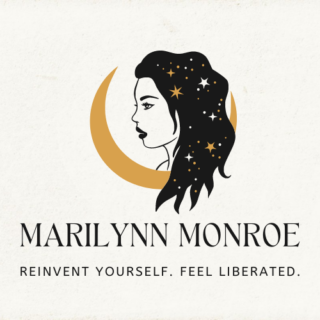One of the symptoms of ADHD that not many people discuss: What is Rejection Sensitive Dysphoria?
Have you ever felt like even the smallest criticism or a delayed text response feels crushing—like a wave of rejection is washing over you? If so, you might be experiencing something called, “Rejection Sensitive Dysphoria”, or RSD for short. It’s an intense emotional response to real or perceived rejection—common in people with ADHD and other neurodivergent conditions.
RSD can make even constructive criticism feel devastating. You might overanalyze social interactions that leave you hyper focused on other people’s body language and tone of voice to sense if they’re feeling any negativity towards you. People who have RSD assume the worst, or avoid situations where rejection is possible.
You may have RSD if you can relate to any of the following:
1. Extreme Emotional Reactions – Intense sadness, anxiety, or anger after perceived rejection or criticism. You can literally feel your emotions in different parts of your body such as white hot rage in the pit of your stomach and a stabbing/electric feeling when rejected.
2. Intense fear of rejection – Constant worry about disappointing others or being judged negatively even when you have nothing to worry about.
3. Perceiving Rejection Where There Is None – Assuming others are upset or rejecting them, even without clear evidence.
4. Avoidance of Social Situations – Withdrawing from relationships or opportunities to avoid potential rejection.
5. People-Pleasing Tendencies – Overcompensating to gain approval or prevent criticism.
6. Explosive Reactions to Criticism – Sudden outbursts of anger, sadness, or shutting down after feedback.
7. Perfectionism – Setting unrealistically high standards to avoid failure or criticism.
8. Low Self-Esteem – Feeling unworthy or inadequate due to fear of rejection.
9. Depressive Episodes – Intense sadness or hopelessness after perceived failure.
10. Difficulty Letting Go of Past Rejections – Ruminating on past experiences of rejection or criticism for long periods.
How to overcome Rejection Sensitive Dysphoria
If you are like me and find yourself suffering from RSD, the good news is there is a way out. It may not be easy at first, however. It will take a long time of practice and re-wiring your brain to overcome. A few things you can try:
-
Practice Delayed Emotional Reactions
-
Pause Before Reacting: When you feel the initial sting of rejection or criticism, practice taking a moment to pause and breathe before reacting. This allows space for more thoughtful responses.
-
Emotional Distance: Try to separate your feelings from the situation. Sometimes, distancing yourself from the immediate emotional reaction can give you a clearer perspective.
-
-
Reframe Rejection
-
Separate your self-worth from rejection: Understand that rejection doesn’t reflect your value as a person!
-
View rejection as an opportunity: Reframe rejection as an opportunity for growth, learning, or finding better fits in relationships or work-related situations. One door closes, another one opens!
-
-
Build Emotional Resilience
-
Embrace Imperfection: Nobody is perfect, and everyone faces rejection at some point in their lives. Focus on how you can grow from these experiences rather than letting them destroy your self-worth.
-
Focus on Strengths: Regularly remind yourself of your strengths and past successes. Engaging in activities that highlight your badassery can boost your confidence especially if you’ve recently experienced rejection.
-
-
Cognitive Behavioral Therapy
-
Challenge your negative thoughts and self-talk: Reframe distorted thoughts that arise with RSD. For example, if you view a comment as rejection, challenge the assumption that it’s personal or significant. It may have more to do with the other person and the way they view themselves and nothing to do with you!
-
Cognitive Restructuring: Learn to identify bullshit thoughts like “I’m not good enough” or “I’ll never be truly happy” and replace them with more balanced thoughts such as “This situation is just a learning curve for me. How can I grow from this?”
-
-
Develop emotional awareness by:
-
Identifying your triggers: Recognize specific situations, people, or comments that trigger RSD. Being able to pinpoint these triggers can help you better prepare for and manage emotional reactions.
-
Practicing mindfulness: Practice mindfulness to stay in the present moment and reduce the intensity of emotional reactions. This helps in observing your feelings without getting consumed by them.
- Remember that emotions are TEMPORARY! This too, shall pass.
-
-
Seek Support from friends, family or a trusted therapist
- It’s important to not keep all of these emotions locked up inside. This is a recipe for disaster. If your inner voice starts to become a real asshole, it’s time to seek help. I know from personal experience. My inner voice is CONSTANTLY talking and overanalyzing everything. Oh, the joys of adult ADHD, am I right?! Sometimes, this inner voice is VERY cruel and constantly puts me down. It’s times like these, that I reach out to a close friend or my significant other to vent and get out all of the crazy emotions. Think of it as taking a great pee after holding it in until you can’t hold it in anymore. So good in fact, that you have tears in your eyes after in both situations. You’ll feel so much better after!
Now that you have an idea of what Rejection Sensitive Dysphoria is, I’ll be getting into all of the scientific stuff in my next article! This is the first of a series of articles talking about the symptoms of ADHD that need to be talked about more often.

